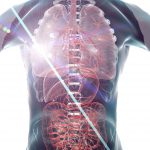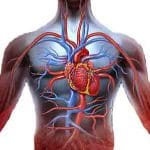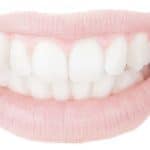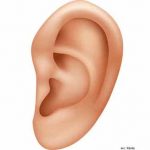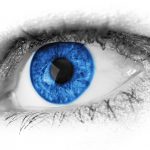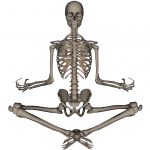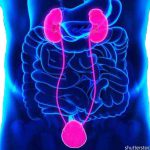Dental Implants in Times of Coronavirus
| Contrary to our usual practice we publish here a rather complete text (origin german), abridged and adapted for the English speaking readership | |
| Oral Implanting in Times of Corona
How should dentists and their teams work in the corona epidemic? The uncertainty is great, because nothing is currently as old as the corona report from yesterday. We are all witnesses of “science in the making”. While researchers are working on vaccines and therapies, epidemiologists are calculating models and juggling with figures, while crisis management teams meet and commissions discuss, decisions have to be made every day in practices and clinics as to whether and how patients should be treated. Even the experts at DGI do not have a crystal ball and can only assess the current situation with today’s knowledge. However, DGI President Prof. Dr. Dr. Knut A. Grötz is certain at one point: “Too much adrenaline might not be the right advice for decision-making processes. Below is the statement of the DGI President: The virologist Prof. Dr. Christian Drosten of the Charité Berlin gave us the key points for coping with this pandemic very early: – It is to be expected 70 % of the population being infected before herd immunity occurs. – The speed at which this infection spreads must be slowed down because otherwise our in-patient healthcare system would be hopelessly overburdened by the rapidly growing number of severe courses of the disease. – The most effective way to do this is to avoid droplet infections during interpersonal contact. In Germany there exist standard procedures for these purposes (lnstitut der Deutschen Zahnärzte (IDZ)) The logical and indispensable consequence of these aspects is that this scenario will accompany us for many months. Therefore it is already clear that very soon after the so-called shut down a clever strategy has to be developed, which activities of public life have to remain suspended “permanently” (i.e. for many months) and which can be gradually returned to normality. The situation of inpatient care In clinics, elective procedures are currently being omitted in order to multiply the valences for the treatment of seriously ill patients with COVID-19. This is the right decision, as all areas of a hospital (beds, respirator stations, staff etc.) have to be prepared for the coming tsunami. In addition, a hospital is also a public space where a great many people with comparatively close contact come together. There is a considerable gradient of infection avoidance, from “maximum” in the aseptic operating theatre on one hand to (so far) “not at all” in the entrance hall, in which many different people ( able-to-walk patients, fluctuating visitors, clinic staff etc.) meet without protective measures. It is therefore apparent that the structures of inpatient care must change in the long term (possibly even permanently). Despite all this, even at the height of the crisis, the range of care is not only reduced to acutely vital emergencies (myocardial infarction, apoplexy etc.) and accidents (traumatology), but so-called “therapies that cannot be postponed” (oncology, infections, acutely symptomatic patients) continue to be provided. The situation in ambulatory dentistry All these aspects are very important when it comes to ambulatory dentistry and especially implantology. Three questions and appropriate answers are of central importance:
Ad 1: It would certainly be easy to point out various scenarios in which we could harm a patient by implantation or by not implanting. Of central importance – and this is really new in the current situation – is, for example, the potential danger posed by the patients’ way back and forth from home to the clinic and by their stay in our waiting areas. We usually don´t think of these aspects from the following perspective. A suitable scenario: In a Covid-19 risk patient (older age, existing basic disease, multimorbidity), there is a medical indication for a complex augmentation (for a two-stage implantation), with a few (onto many) outpatient check-ups. Here apparently this procedure should rather be postponed to the time “after the storm”. Another scenario: In the case of a condition following successfully treated periodontal disease and loss of a distal bridge abutment and temporary restoration with a long-term temporary free-end bridge, implantation is due at the zenith of spontaneous ossification and corticalization. Postponement of this procedure is associated with various risks for the patient – from a deterioration in the prognosis of the residual mesial teeth to an atrophy of the implant site. There in terms of prognosis are more arguments in favor of implantation than against it. In contrast to the past, we will now provide these patients with tips for the way to and from the clinic (mouth and nose protection in public transport, etc.) in addition to the usual perioperative information, and – of course – we will take the currently indispensable care in the registration and waiting areas (distance!). Ad 2: Because of the direct contact with the patient’s face and the resulting occupational risk of a droplet infection, dentists, maxillofacial surgeons, ENT and ophthalmologists (including the respective treatment team) bear a significantly increased risk of infection. Danger triggers an escape reflex. Therefore, the emotional accompanying scenario in the discussion of this question is very understandable. Nevertheless, too much adrenaline is sometimes not the right guide in decision making processes. The prudent analysis of the scientific data by Prof. Dr. Zhuan Bian, the Dean of the School of Stomatology at the University of Wuhan, which was conducted in dialogue with Prof. Dr. Dr. Bilal AI-Nawas (Mainz) and Prof. Dr. Frank Schwarz (Frankfurt/Main) as well as other scientists in the DGI webinar, allows – also in connection with the references of the lnstitut der Deutschen Zahnärzte (IDZ) – the following cautious conclusion: The more precisely we can assess the actual risk and the more we perceive the individually correct safety measures for the whole team, the more reliably a virus transmission can be avoided. This conclusion differs markedly from polarizing statements like “continue as before” to “close all clinics”. Ad 3: Against this background, it is particularly difficult to talk publicly about financial aspects of the health care system. On the other hand, the polarising demand for the closure of all dental practices is often directly linked to the demand for full financial compensation. Fear and adrenaline are also part of the discussion in this issue. The more precisely we can assess the actual risk and the more we perceive the individually correct safety measures for the whole team, the more reliably a virus transmission can be avoided. The following aspects are important here: If we behave as described under 2, the dental practice is a comparatively safe place with regard to the spread of the pandemic. We just have to follow the rules, maybe give up old habits and not, for example, crowding 40 fluctuating patients into a cramped waiting room for an hour. If the dental therapy is adapted as a whole and individually – avoidance of aerosols; hand instruments instead of ultrasound at the professional dental cleaning etc. – basic dental care can be maintained. The appropriate treatment of SARS CoV-2-positive patients can also be carried out in dialogue with priority facilities. Back to implantology: A saying by Max Frisch states: “Crisis is opportunity, you just have to take away the touch of catastrophe”. In this sense, dentists should remember their medical mission. Even if the adrenaline in our veins suggests the idea of a radical solution, we are well advised to continue on the path of individualized and personalized medicine in the field of dentistry and implantology. So: There is no fundamental contraindication for oral implantations for scientific reasons! |
|
| Author(s) | Source |
| Prof Dr Dr Knut A. Grötz, Wiesbaden; President of the DGI e.V. | translated text from 02.04.2020, see all german texts to covid 19 issues here: https://www.quintessenz-news.de/kzbv-schaltet-infoseite-zum-coronavirus/ |
| This is a post of a scientific or business information. The information given here is checked thoroughly by “Implant-Register”. However we can´t be responsible for the content. Contact the publisher, if you have questions. You may inform us about changes of the information to improve the Register. | |
| Comments: n/a let us know |
|
Find NEWS and PUBLICATIONS here according to your interests or use the search box.

